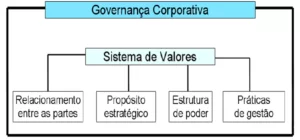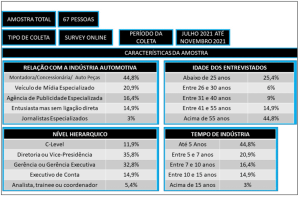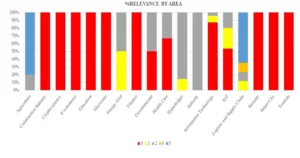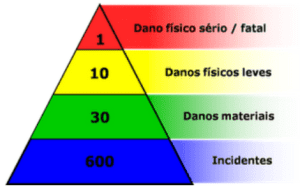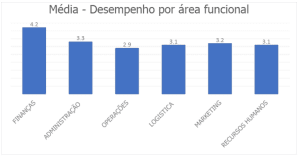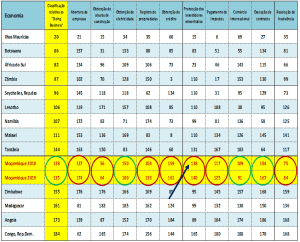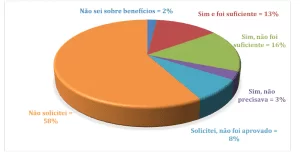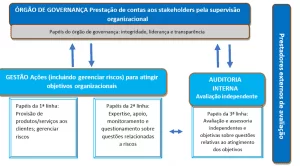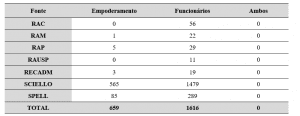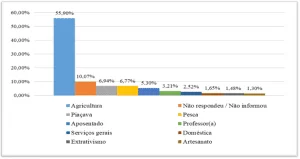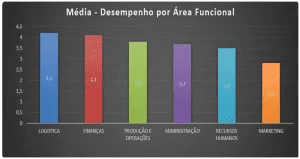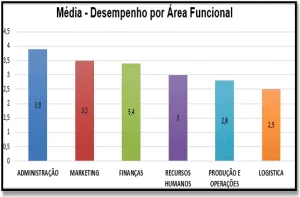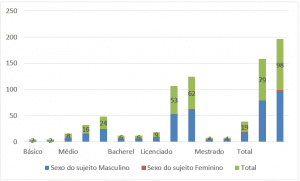ORIGINAL ARTICLE
ALVES JÚNIOR, Marcos de Oliveira [1]
ALVES JÚNIOR, Marcos de Oliveira. The Municipal Planning Cycle: From the Government Program to the Budget. Revista Científica Multidisciplinar Núcleo do Conhecimento. Year 05, Ed. 09, Vol. 08, pp. 36-45. September 2020. ISSN: 2448-0959, Access link: https://www.nucleodoconhecimento.com.br/business-administration/planning-cycle
SUMMARY
Planning is essential in any area of life, in public administration it would not be different, however, especially when it comes to municipal public administration, one perceives the fragility of this basic action for good management. The popular saying that we all know “prevention is better than sorry” is widely used and of simple and objective meaning, always referring to prevention actions, in public administration it is possible to envision a new saying “planning is better than remedying”. It is precisely in the planning in the municipal public administration that this article will focus, seeking answers so that managers and their team understand the importance and achieve the long-dreamed planning. What is the importance of Planning in Public Administration? In order to respond to the problem, the general objective is: to analyze the contributions of the Prior Planning, from the Government plan to the Budget. The deductive method was the one adopted for the implementation of this research. This was an exploratory research; regarding the approach to the problem, it was qualitative; technical procedures, was bibliographical. Planning in Public Management becomes increasingly essential and indispensable to achieve the primary purpose of the administration that is social welfare, however, when this planning is related to Public Management, it is perceived the absence of systematization, being restricted to the budget plans provided for in the legislation, carried out in a mechanized way, without the concern of building with objectives outlined, a problem outlined , and without the participation of those involved in the appropriate form.
Keywords: Planning, Public Administration, managers.
INTRODUCTION
This article was elaborated based on the experience of the author, where over the 18 (eighteen) years working with public accounting he experienced the reflexes of municipal planning and/or absence of it. Thus, the objective of the article is to highlight the importance and advantages of planning for a municipal management of excellence, presenting when this planning should start, some indispensable points in the process, and the recommended cycle to achieve the objectives in a planned way.
In this line, by offering elements for the improvement of the discussion about planning in municipal management, this study intends to contribute to the consolidation of previous planning, disseminating the importance of this tool for management and for the whole society, as well as the consequences of its absence. According to Rezende (2008, p.15) “planning is synonymous with objectify, thinking, dreaming, wanting, and so on (…)”.
It highlights the importance of implementing the previous planning, and the constant review of these plans, only with this type of instrument that management will begin to achieve greater participation in its actions and better results for society.
1. WHEN TO START A GOOD PLANNING IN PUBLIC ADMINISTRATION?
A successful municipal management undispensably begins with good planning, it is certain that this planning has a palpable beginning, even if very generic, in the construction of the government plan to be delivered to the electoral court when the registration of the candidacy (New wording of art. 11, § 1º, IX, of Law 9.504/97). At this moment the then candidate, has the possibility to plan and put his ideas of governance for his municipality on paper, has the possibility to look at and look at the history, data, facts, possibilities, statistics and the current reality of his municipality and clear of the citizens. However, rare candidates who delight in a well-designed, well-designed government plan, with a detailed study and result of teamwork, of people who have minimal understanding in the various areas in which the plan should cover.
It is known that this obligation is somewhat recent, but before that, the candidates already used this mechanism of “planning” to guide their election campaign, even if they were strategic drafts of the campaign. Most often the government plans delivered to the electoral are simply to fulfill an obligation, a prerequisite for the registration of the candidacy, in other times, are prepared by political marketers, who generally know little the local reality and develop a very showy, beautiful, exciting piece, yet far from the local reality, almost impractical.
The change in the electoral legislation cited (New wording of Art. 11, § 1, IX, law 9.504/97), does not bring the provision of punishments to those who break their proposals and promises, but may represent an important advance towards awareness and criticism by voters, brings with it a moral “obligation” to the electorate. The professor of electoral law Alberto Rollo (interview with gazeta digital on 15/05/2010) highlights:
The included device is interesting because it generates a moral penalty, that is, having an agenda to fulfill that, if not achieved, may generate criticism by the non-compliance, clarating moral aspects of non-compliance, or may generate criticism of the proposals for understanding them insufficient (GAZETA, 2010)
So what would be the ideal pre-election planning model? The answer lies in the needs of each municipality, a candidate who intends to guide his administration in prior planning, must first surround himself with good advisors, people who know the local reality and can align this with political ideals and the economic capacity of the municipality. A well-done, broad and detailed study will give the then candidate and his campaign team a prior diagnosis of the real situation, this allows the future manager to know “where he is stepping”. For Saldanha (2006, p.23) “the purpose of Government planning is to define objectives for the future and the means to achieve them”.
2. POST-ELECTION PLANNING
The candidate was elected, and now which way to go? This second moment is perhaps the most important in the planning of a management, and many elected managers end up not realizing this importance. It is at this moment that the manager and his team should review their government plan, now thoroughly deepen in each area of activity, know the reality of the current management that will succeed, questions such as: What is the gross indebtedness of my municipality? What is the current rate of personnel and social charges? What is the staff of the municipality? How is the public cleaning done? Will continued service contracts be added? What should be prepared so that day 01/01 does not have problems with health, safety, urban cleaning? Among many other questions that should have their answers acquired as soon as possible, and this will enable a good planning for the management to come.
Government transition is mandatory (Based on the Federal experience regulated by Law No. 10,609, of December 20, 2002, and Decree No. 4,298, of July 11, 2002, motivated by the proposals of the Federative Articulation Committee – CAF, consolidated in the National Agenda for Support to the Management of Municipalities; currently the Courts of Accounts have specific resolutions for the transition of government), however, we know that the maturity of the governors and often the majority of their team and electorate is not sufficient for this act of democracy and continuity of administration, what we have after the election are generally attitudes totally contrary to a good transition, with actions that hinder the knowledge of reality, which sometimes results in acts of administrative impropriety, of crime against the public thing, and will bring losses often incalculable to new management and mainly to the population. It is not uncommon for cases where there is simply no transition, not even the formalization of the documentary bureaucracy defined by the current legislation, it simply becomes a “post-war” where if my enemy won this battle, I will totally hinder his later performance, thus , I will be able to win the next fight; more and the people? the people “forget easily”, this is the image that many politicians / managers have. As stated by Meirelles (2014, p.843) “the primary purpose of administration is the promotion of social well-being”.
Considering that the transition of government when well done, allows the prior knowledge of the real municipal situation, its potentials, the good things of management that is leaving the government and can have a continuity, after all are good actions, and this seems clear since the public administration should follow the principle of continuity, however, not uncommon cases in which a project is discontinued by the simple fact of having been implemented by the other management. In the transition, it is essential to see a general and detailed check of all administrative sectors, a depth of detail that allows us to know whether the existing effective servers in the municipality framework are able to develop the demands of the sector to which it is crowded, whether primary sectors such as: Accounting, Human resource Management, Bidding and Taxes, has servers trained to perform the functions, and how much of the administrative gear is moved by commissioned , this diagnosis will give an overview of the needs of personnel, qualified professionals, or even the hiring of specific advisories for each demand.
The moment of the transition also refers to a great need for definition on the part of the future manager, the definition of his work team, the positions of trust, the secretariat, such definitions are extremely important for planning. It is plausible for example that the future Secretary of Health already participates in the transition of government, will have his specific look and focus on his portfolio, structural and team needs, current and desired situation, all these diagnoses and parallels will shape a good planning leveraging the possibility of success, and the example of the secretary of health expands to all other folders. This team to be formed by the new manager should have at least a balance between politicians and technicians, there is no management without a political vision, but it is certain that a management without a technical vision will be doomed to major problems of planning and consequently execution, which will lead to problems even of a personal nature to the future manager. The legislation (Federal Constitution of 1988) allows positions of provision in committee, the so-called free appointment and exoneration, intended for the duties of direction, leadership and advisory, however, must observe the proportionality in relation to the effective functions of provision through public tender.
Will knowing the municipal reality in detail help in the decision of team formation, giving a better basis for knowing which area should insert extremely technical people? where it demands people with a greater political focus? where does the middle ground fit? There is still a major problem in most small municipalities, simply the scarcity of technicians with good knowledge and experience in the necessary areas, the famous skilled labor, and this is a big problem. The consequences of this scarcity are usually the filling of vacancies with people without the necessary capacity and knowledge, occupying such positions simply by “political commitment”, and this is undoubtedly one of the biggest villains of the public administration, and the first step to failure in management planning.
The planning in Oliveira’s vision (2012, p.41) is:
(…) the administrative methodology that allows the diagnosis and analysis of current situations, to establish results, objectives and goals to be achieved by organizations and to outline actions – strategies – to achieve these results, as well as to establish laws and norms – policies that support this administrative procedure.
Thus, when the transition process, if the team of the new government encounters difficulties in obtaining the data, difficulty in having access to the public sectors and impediment to discuss with municipal employees, it is indispensable to take legal measures, the damage of a fragile and incomplete transition can be enormous for the new management, always based on the assumption of prior and detailed planning of the needs and actions of the government.
3. FIRST YEAR IN OFFICE, CONTININUITY OR TOTAL RENEWAL?
We now have a third moment, the first year of the new administration, a time when the previous planning that was carried out or its absence is put to the test. It is essential to mention again, that the public administration must follow the principle of continuity, therefore, even in the case of a new management, there are legal “ties” that are not optional, the obligation of this continuity is materialized in the constitutional instruments of planning and budget (Pluriannual Plan – PPA, Budgetary Guidelines Law – LDO and Annual Budgetary Law – LOA), being the PPA – Pluriannual Plan, prepared in the first year of management to apply until the first year of the next management, a clear and specific order with the purpose of maintain continuity in public management and its actions, then we have the LDO – Law of Budgetary Guidelines and LOA – Annual Budget Law, both approved in one exercise to be in force in the next, that is, we have two laws of paramount importance for planning approved in the last year of a management to be valid in the first year of the next management, I hit the key of the constitutional idea of continuity, because However, in practice, the municipalities and their managers have many difficulties in transforming the documentary pieces into a reality of continuous planning and execution and the planning pieces and budget guidelines, end up not even being used as a subsidy for the elaboration of the Municipal Plans of each Secretariat, making – obsolete.
It is quite common to come across in the first year of office with budgets very poorly made, either by the technical deficiency of the planning teams of the municipalities, or by the phenomenon of “the worse, the better” applied many times by managers who are leaving office, and imagine that harming the next management is the best way to return to power. We then have a first year of management intertwined with a budget planning defined by the previous management, linked to the PPA made 5 years ago, and if all this is added to a bad prior planning done by the new management, or even the absence of this prior planning, the trend is a disastrous result, however, if this whole process was analyzed previously , planned and studied, minimizes the margin of errors, projects needs and needs, and the search for solutions is optimized.
The main benefit of planning is the establishment of a future course of action that promotes the coordination of internal resources gives organization with its political and external challenges. The planning process integrates the functions of the organization with its resources aimed at achieving its objectives (SORD and WEISCH, 1964).
The first year of management will always bring many experiences for the new manager and his team, many of them will be negative other so positive, so that all those who learn from mistakes and have the wisdom to seek to avoid and prevent them, galgam the path of planning to achieve success. After the first year of a new management, it is essential that the manager gathers his team and requests from all departments and technical sectors a report on the situation found at the beginning of the management, what was done during the year, the difficulties, solutions and especially the planning so that in the second year the result is better. This applies the need for the Management Report that allows the Municipal Manager and Secretaries to analyze the implementation of public policies, the goals foreseen and achieved and the considerations to be pointed out so that the municipality can achieve its indicators and goals in the following year.
4. IS THERE TIME TO CORRECT THE COURSE OF MANAGEMENT?
The answer to this question is simple: it depends. But doing so is not something so simple, after all “planning is better than sorry”, to correct the directions depends on the will and perception of the manager, depends on the capacity of his team, and depends on how much the absence of previous planning committed to future actions.
It is entirely possible to build a well-made, discussed and well-designed budget, in the right measure for the municipality, and thus have a second year of management in the necessary molds at the budgetary level, as it is also fully possible to build a financial planning appropriate to reality of the municipality and execute it in the second year of management, on the other hand, there are traces of the absence of prior planning that may require a much greater effort to adapt, we can mention the personnel expenses index, where in the first year of management there is little observed by many managers who end up inflating the payroll and make the resources of the municipalities practically hostage to the payroll and its charges (And the INSS – National Institute of Social Security? It deserves a specific agenda, which will be for another opportunity) and to renew itself the index to the prudential limits of the LRF – Fiscal Responsibility Law, is an arduous and very complicated path, other examples are bids and s covenants, especially when it comes to federal resources, in both cases the consequences for management and especially for the manager are terrible, there are countless cases of managers who had problems with the return of resources, fines, blockages of goods, all as a result of lack of accountability, wrong or incomplete execution of agreements, totally bad bids, and all this reflects the lack of planning.
The second year of management is timely to “remedy”, the new team will already be more experienced, will have lived a whole exercise, passed through the most diverse situations, and will have full conditions to seek better planning and solutions to the problems presented in each area. I also defend a thesis that there should be a change regarding the year of preparation of the PPA – Multiannual Plan, the reality of maturity and technical conditions of smaller municipalities is a first year of management of much learning and difficulties, a time when the necessary conditions are not met to elaborate such an important planning and that will be in force for the next 4 (four) years of the Municipality , that is, I will plan in the long term without knowing my municipality and all the necessary commitments, why not define this obligation for the second year in office? The answer is also simple, the legislation in its perfect combination of instruments, deals with the ideal world, the more we have a “real world” where the reality is totally different, I think this should be taken into account.
Without the knowledge of a planned future course of actions and events, administrators have no basis for decisions. Success in implementing plans is constantly threatened by organizational control problems, employee behavior in the organization, and its general tendency to resist change (GORDON, 1992).
Each new year is also a new cycle in management, being possible to make many corrections and adjustments, just plan and execute, it is never late, but “remedy” does not guarantee that there will be no scars.
CONCLUSION
The path to success in public administration inevitably involves a well-done planning, planning that should begin in the preparation of the government plan, intensifying after the elections, materializing in the transition of government and consolidating itself at the beginning of management, this is the model we understand ideal, which will enable managers and their team to work with greater clarity , execute with the certainty of a solid planning, not forgetting that each year of a management is a cycle that is renewed, always making it possible to “remedy” correcting the course of things. To those who have not been happy in this entire cycle of planning, or simply did not do it at any time, if there is an ideal moment in this scenario to correct the directions, it is the second year of office, learn from mistakes and change things, you need to know where you want to go, the writer Lewis Carroll already said “If you do not know where you want to go , any way serves” (Book Alice in Wonderland), it is necessary to have the conviction of which management one wants to have, defined this is to go to planning and never forget: “planning is better than sorry”.
REFERENCES
BRASIL. Lei nº 10.609, de 20 de dezembro de 2002 – Dispõe sobre a instituição de equipe de transição. Disponível em: www.planalto.gov.br
BRASIL. Constituição (1988). Constituição da República Federativa do Brasil. Disponível em: www.planalto.gov.br.
BRASIL. Lei Complementar n.º 101, de 04 de maio de 2000. Estabelece normas de finanças públicas voltadas para a responsabilidade na gestão fiscal e dá outras providências. Disponível em: www.planalto.gov.br.
BRASIL. Lei nº 9.504/97 – Lei Das Eleições. Disponível em: www.tse.jus.br
REZENDE, Denis Alcides, Planejamento estratégico para organizações privadas e públicas: Guia prático para elaboração do projeto de plano de negócios. Rio de Janeiro. Brasport, 2008.
OLIVEIRA, Djalma de Pinho Rebouças de. Teoria Geral da Administração: uma abordagem prática. 3 ed. São Paulo. Atlas, 2012.
MEIRELLES, Hely Lopes. Direito Administrativo Brasileiro. 40. Ed. São Paulo. Malheiros Editores, 2014.
SALDANHA, Clezio. Introdução à gestão pública. 2 ed. São Paulo. Saraiva, 2006.
[1] Post-graduated in Municipal Public Administration, Post-Graduated in Municipal Public Accounting, Bachelor of Accounting.
Submitted: August, 2020.
Approved: September, 2020.

